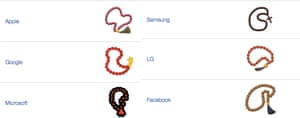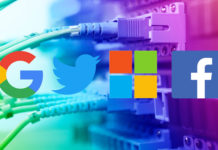It’s a tricky life, being an emoji designer. Unicode, the consortium that controls the key standard used to digitally encode writing, picks which emojis need to be included, but until recently offered little guidance beyond a name and a black and white illustration.
Then there’s the problem that every individual operating system needs to design its own emoji because the little glyphs are copyrighted, so it won’t do to simply use the same ones as your competitor.
The issue is complicated further by the outsized cultural influence of one particular operating system: Apple’s iOS. Sure, there was nothing in the description of “Dancer” to indicate it had to be a woman, but once Apple went with a picture of a fabulous flamenco dancer in a bright red dress for iOS, that came to be the expected rendering of it.
Further problems arise because ensuring your messages are comprehensible across platforms is key. If you’re an emoji designer, you want to add your own spin to the characters, but not so much so that your customers miss the crucial context contained in messages from their friends and loved ones.
But then there’s the world’s largest smartphone manufacturer, Samsung. Based on the evidence, Samsung’s emoji designers just decide to go their own way, no matter what Android-creator Google, Apple, Facebook and Twitter favour.
That means, what you think you’re sending to a friend, you may not be sending to a friend. Here’s a quick selection to show you the problem.
Triangular flag on post
Six emoji flags. Photograph: Emojipedia
In Samsung’s defence, the Unicode name for this emoji doesn’t require that it be red. On the other hand, as Emojipedia “chief emoji officer” Jeremy Burge noted when he sent this comparison, literally every other emoji in existence does make it a red flag. Don’t text your Samsung friends support for world socialism, in other words.
Person bouncing ball
Four basketball emoji. Photograph: Emojipedia
Samsung. It says it in the name. “Person bouncing ball”. Yes, everyone else read into the name and assumed it was a basketball player and now the emoji has come to be basketball specific, but you don’t get to mess us around like this, guys.
Prayer beads
Six sets of prayer beads. Photograph: Emojipedia
Every single emoji designer: “let’s follow the specific unicode instruction, and create a non-specific set of prayer beads so that customers of all faiths can use this emoji.”
Samsung: “It’s a rosary. Deal with it.”
Ledger
Four ledgers. Photograph: Emojipedia
So, look: obviously yes, Samsung has again done the opposite of everyone else and decided to make its ledger blue rather than yellow because it can. But really, I wanted to include this to point out those weird letters on the cover. They were added in the latest update to the company’s emojis, with no real reason, and they look like they’re supposed to be some sort of easter egg, except they aren’t really hidden at all, and they’re on at least 10 of the company’s emojis. Maybe they’re the initials of the designers? If so, JYS: think about what you’ve done.
Cookie
Four cookie emojis. Photograph: Emojipedia
OH COME ON.
The one potential excuse here is that maybe Samsung decided to follow Apple and deliberately do something different from the rest of the industry. Just as Apple famously swapped the pistol emoji for a water pistol in 2016 in an attempt to prevent trivialisation of gun violence, perhaps Samsung is trying to help fight obesity by swapping an unhealthy cookie with its healthy alternative: two crackers.
If someone sends you the disgusting combo of cheese and cookies, now you know what happened.
Source: theguardian.com















